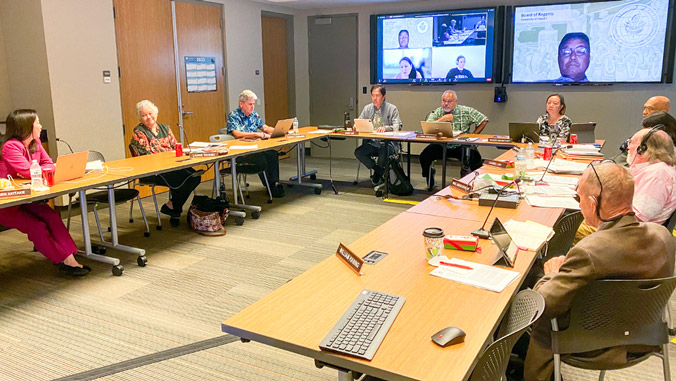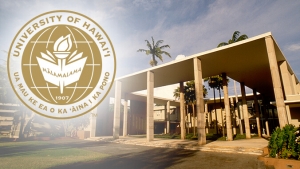
The University of Hawaiʻi Board of Regents aims to select the next president of the 10-campus system in June 2024, according to the process approved by the regents during a five and half hour long meeting on December 7. The process includes hiring a search firm with access to Hawaiʻi expertise and/or Hawaiʻi focus by January 31, 2024 to conduct a national search and recruit candidates. The recruitment process will run through April 15, followed by an evaluation period and the official selection in June. The new president would begin in fall 2024, replacing current President David Lassner, who announced in September that he will retire in 2024. The regents acknowledged that it is an aggressive timeline and will adjust it if needed.

“This is one of the most important positions in Hawaiʻi, and we know that a lot of people have strong, oftentimes, opposing opinions, even among the regents, on what unique skill set the next president should possess and how to identify that person,” said BOR Chair Alapaki Nahale-a after the meeting. “Where we as regents are united is that we want what’s best for the University of Hawaiʻi. We are excited to launch this process to bring all perspectives together to make the right choice and bring someone who can build on President Lassner’s legacy.”
The board also decided that every regent will serve on the selection committee, and the UH President position will retain its UH Mānoa responsibilities. However, the regents officially noted that they intend to consider removing the UH Mānoa duties from the president’s responsibilities to allow the president to focus on the 10-campus system. Non-academic duties at UH Mānoa were transferred to the president during a two-phase reorganization approved in 2019 and 2021. The reorganization eliminated the UH Mānoa chancellor position and established the UH Mānoa provost, who is responsible for all academic areas of UH Mānoa.
The regents also committed to a listening phase to provide opportunities for stakeholders—faculty, staff, students, alumni, donors, other constituencies—to share their views on a new president. This phase of the search will include a survey and other forums open to anyone who wants to participate.
The board will hold a special meeting on January 4 to determine final details including the makeup, function and selection of the advisory group. The advisory group will consist of representatives from stakeholder groups including faculty, staff and students.
The selection process details were finalized during deliberations on the report by the Presidential Selection Process Permitted Interaction Group. The group of five regents met in compliance with the state’s Sunshine Law to develop the report.

